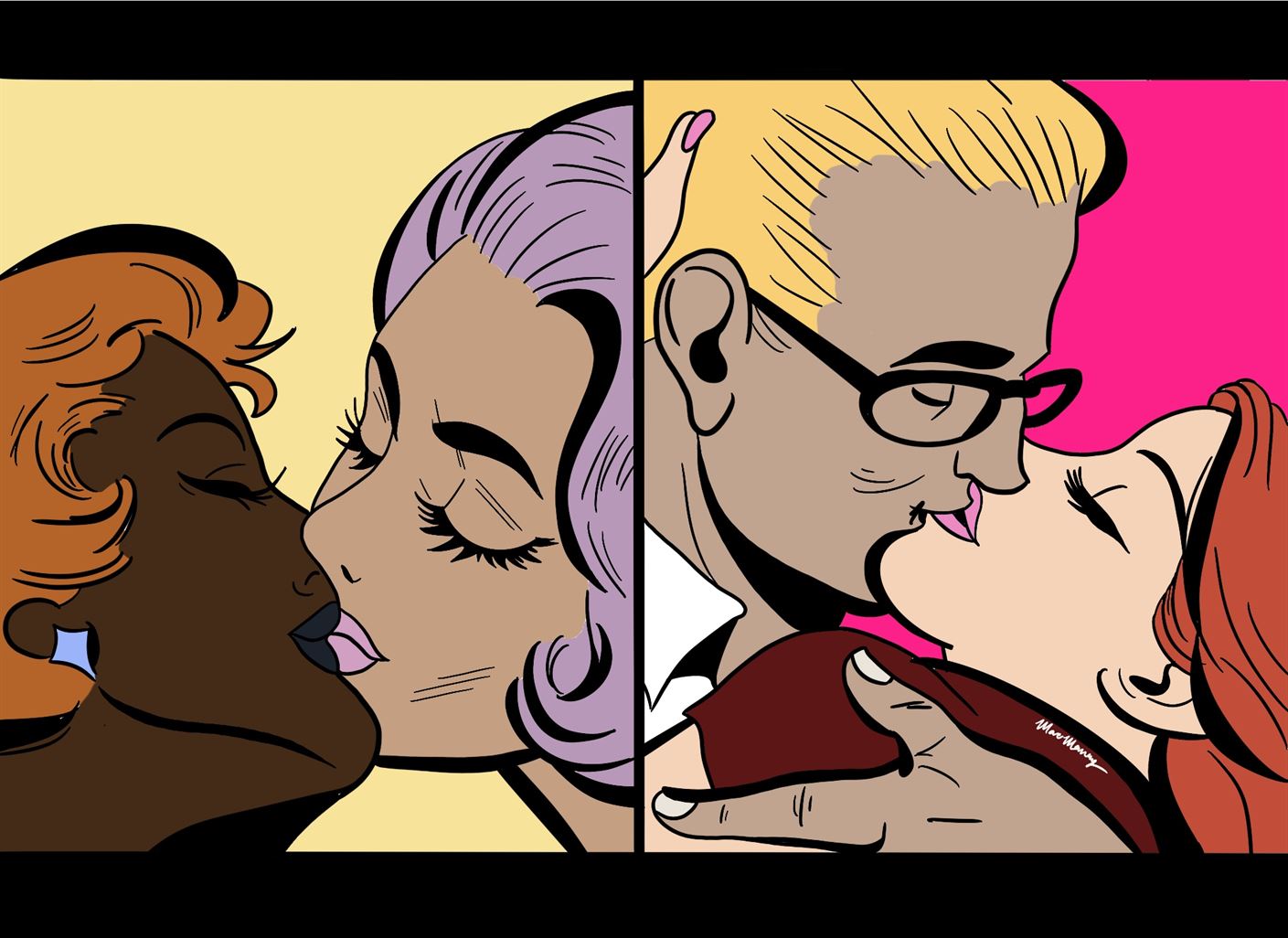A few weeks ago, my (straight [derogatory]) friend said something I thought was genuinely eye-opening.
I had asked them if they had watched “The Fallout” on HBO Max. Upon them responding “no,” I jokingly asked if it was because of the kiss between Jenna Ortega and Maddie Ziegler’s characters. They said, “I don’t relate to gay content, so I don’t actively seek it out.”
There are two things I found interesting about their statement.
First, I find myself relating to straight characters all the time. I love Fleabag from Phoebe Waller-Bridge’s “Fleabag,” but I love her because of how relatable she is as a character. Her struggles with self-worth and guilt are problems that we all face, and her sexuality is abundantly clear within her character’s frequent one-night stands. Even then, it could not mean less to me.
Second, I for one, do seek out queer content. But how is it that when I do find it, the relationship is plagued with tragedy and often ends in death? Why, when allowed to write almost any plot for a queer character, is happiness deemed unattainable?
If you take a quick look at the large majority of shows with queer representation made in the last five to 10 years, most of the showrunners are straight, cisgender, white and more often than not, male.
Maybe I’m being too general about this, or maybe they’re just not good writers. Then again it seems to be difficult for most writers to make queer characters who are driven by more than just queer representation. When a character is good, people will relate to them regardless of their sexual orientation. But more often than not writers tend to make characters’ entire personalities revolve around being queer, rather than making a well-rounded character who just happens to be queer.
Now, I’m not saying I have a problem with a character’s personality focusing on their experience being queer; in the real world, queerness is interwoven into who a person is. But when this is being written by someone who does not relate to that aspect of a character, the emphasis on their sexuality becomes the main focus, overshadowing anything that the character has or will do in the future.
A recent instance of this is “Killing Eve,” which ended with the death of an openly queer woman. It’s clear (straight) showrunner Laura Neal did not understand the motivations behind the character enough to give her a realistic end.
The character is given a chance to complete her ultimate goal but is then killed when she is reunited with her love interest, seemingly punishing her for wanting a happy ending. Neal has since admitted to not being able to picture a happy relationship between the two characters, saying “No, we can’t,” in reference to the idea. All the while, LGBTQ+ members of the writing team have openly disagreed with her sentiment.
Just because a straight person is unable to picture a happy ending for a woman that would include another woman, does not mean that it isn’t realistic. It just means that she isn’t able to relate to it enough to write it.
Though it may seem like a one-off occurrence I’m hyper-fixating on, this is a common occurrence in media, and if I had to name a few more I would mention “Supernatural,” “The Haunting of Bly Manor,” “The 100,” “Buffy the Vampire Slayer,” et cetera.
Queer characters in media are here to stay, so we should probably just get better writers to help tell their stories. But maybe, just maybe, we should also let queer people tell queer stories.
We don’t just deserve representation in entertainment, we deserve good representation, written by people who understand and can empathize with the characters they have created.



